For all businesses, getting to grips with commercial bin sizes for waste is vital in order to meet legislation, reduce environmental impact and save money. In the UK, over 200 million tonnes of waste is produced every year (UK Government Report), a large proportion of this from industry.
At Great Western Recycling, we’re committed to helping businesses across the UK meet their sustainability goals by providing tailored waste management solutions. We’re experts in rubbish and have helped a wide range of clients achieve zero waste to landfill.
In this blog, we lift the dustbin lid on bin sizes, helping you figure out which is the right one for you.
What Sizes Do Commercial Bins Come in?
There are three main types of bins available to businesses: wheelie bins, front-end loaders and roll-on roll-off skips. Below, we discuss each type and what businesses they are best suited to.
Wheelie Bins
These are the most common bins used by small to medium businesses and most types of rubbish can be stored in them. Wheelie bins are the best choice for lots of companies as they are easily manoeuvrable and can come with lockable lids to keep waste secure and protected from adverse weather. Ranging from 240 to 1100 litres in volume, wheelie bins are ideal for industries with clearly identifiable streams of waste such as those in the hospitality sector where large amounts of leftover food and glass bottles are produced.
Here are a few examples of Bin Sizes that we at Great Western Recycling provide:
240 litre Bin Dimensions
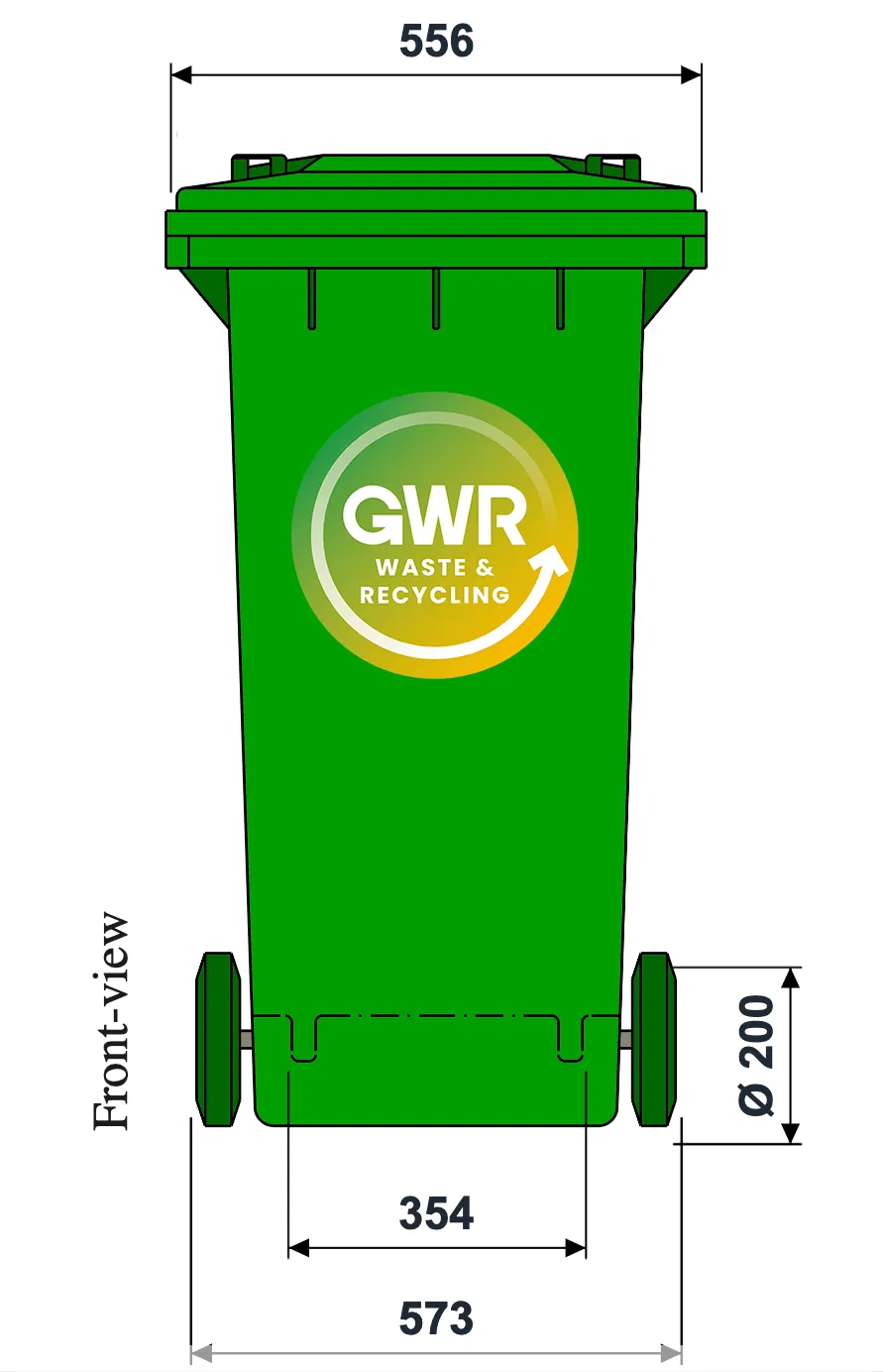
3-5 Bag Capacity
Height 1063mm; Width 575mm; Depth 713mm.
- General Waste
- Dry Mixed Recycling
- Cardboard & Paper
- Glass
- Food
360 litre Bin Dimensions
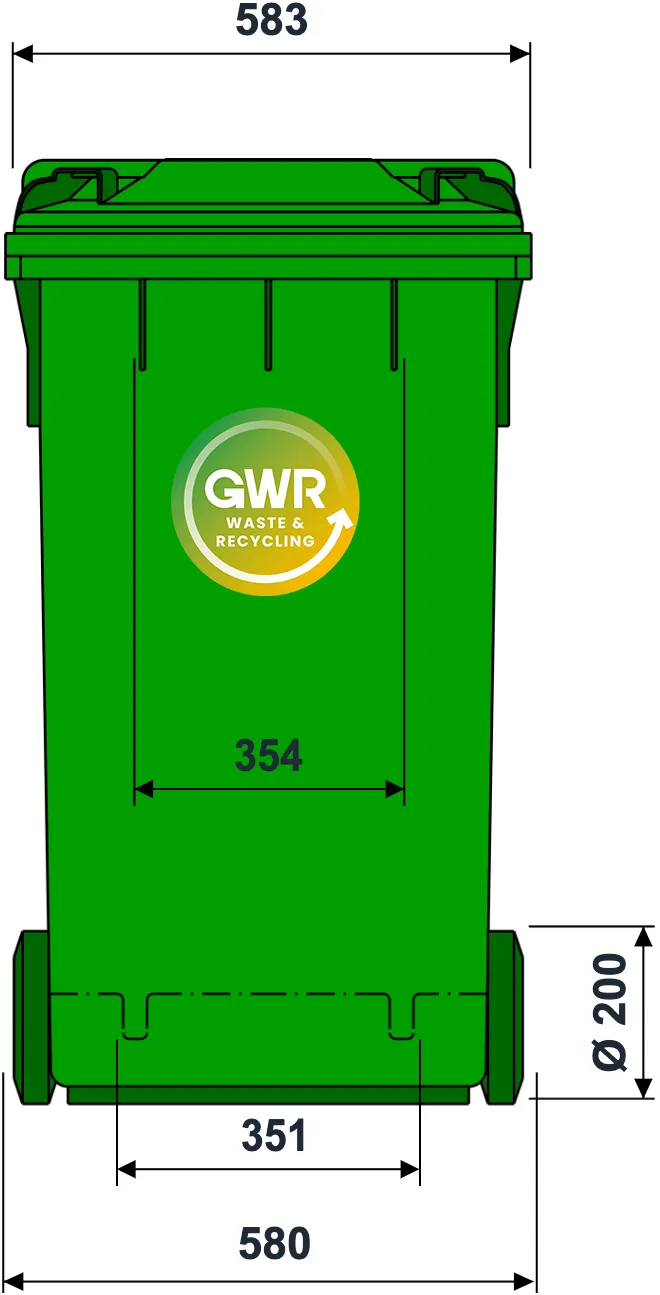
5 – 7 Bag Capacity
Height 1098mm; Width 596mm; Depth 878mm.
- General Waste
- Dry Mixed Recycling
- Cardboard & Paper
- Glass
660 litre Bin Dimensions
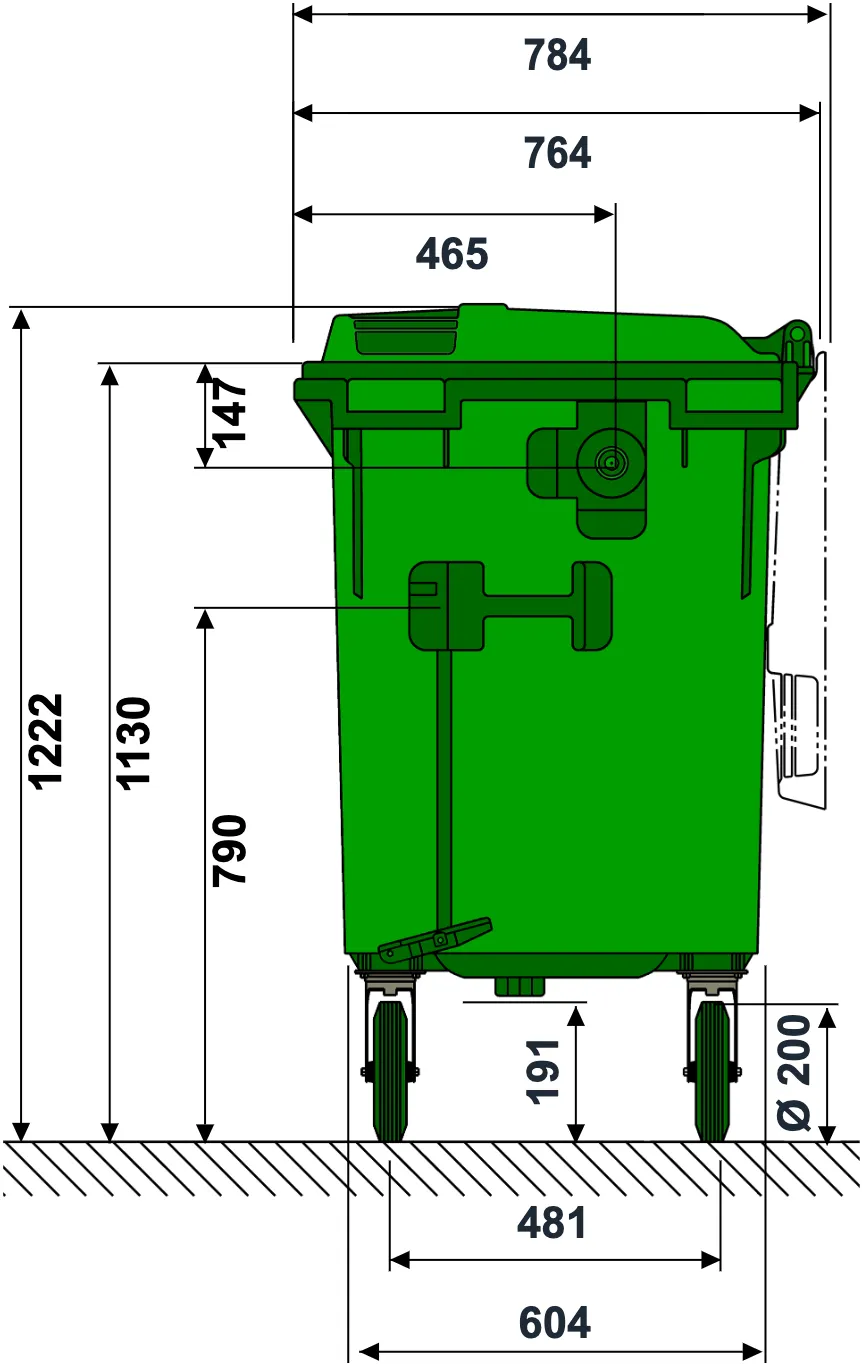
8 – 10 Bag Capacity
Height 1222mm; Width 1371mm; Depth 764mm
Suitable for:
- General Waste
- Dry Mixed Recycling
- Cardboard & Paper
1100 litre Bin Dimensions
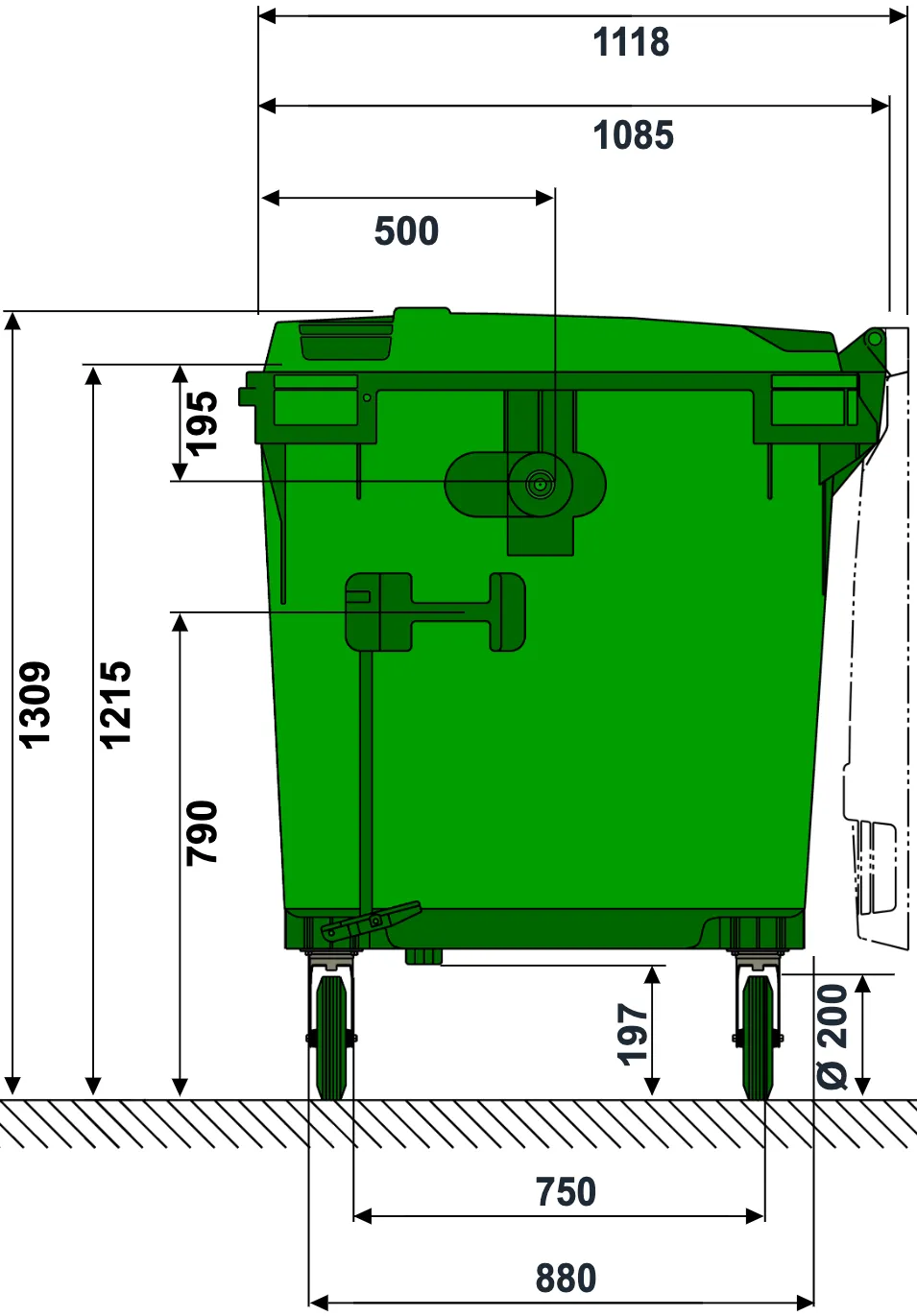
15 – 18 Bag Capacity
Height 1222mm; Width 1371mm; Depth 1085mm
Suitable for:
- General Waste
- Dry Mixed Recycling
- Cardboard & Paper
Benefits of Food Waste Recycling >
Front and Rear End Loaders
Front and rear-end loaders are the intermediate size of commercial bins, available in volumes of 6, 8 and 10 cubic yards. They are ideal for industries that produce a medium to high level of waste such as manufacturing where there tends to be off-cuts, leftover material and discarded packaging.
They are particularly well suited to large volumes of cardboard or other dry-mixed recycling and come with lockable lids meaning they can be stored indoors or outdoors depending on your site.
Roll-on Roll-off Skips
These are the largest bins available to businesses and are perfect for companies working in industrial or construction sectors. Size-wise, they can be anything from 6 to 35 cubic yards and are perfectly suited to storing large quantities of general waste or unsorted scrap. If your organisation produces a huge amount of waste, an on-site compactor or baler might be worth considering as well. Roll-on roll-off skips are capable of storing huge quantities of material, which can save you money by reducing the frequency of bin collections you require.
Commercial Bin Size Cost
There are many charges that arise when looking to rent a commercial bin and book a collection. One of these comes from the ‘duty of care’ – a law requiring all businesses dealing with waste to keep it secure and deal with it responsibly. As waste service providers must issue a transfer note and certificate demonstrating that they are fulfilling this duty, there is often an admin fee for this. On top of that, there’s the lift charge and the bin rental fee itself.
Great Western Recycling has taken the confusion out of pricing and presented customers with a simple one-price-per-empty solution. With transparent billing, flexible services and a friendly team, Great Western Recycling are here to make managing your waste as easy as possible. Contact our team and we can issue you with a custom quote.
How to Decide on Commercial Bin Sizes UK
Choosing the right size bin can seem a tricky decision. Really, it just comes down to thinking about your business’ waste output and asking yourself a few simple questions.
Type of Commercial Waste
Identifying the different streams of waste your business is producing is vital in order to manage this waste effectively. Different kinds of waste are practically suited to different bin sizes, and the type of waste you produce will depend on what industry you work in. A building company, for example, will require a larger bin than an office-based company.
As well as this, certain types of waste are unsuitable for general or recycling bins and must have their own specialist, secondary container. An example of this is clinical waste, produced by businesses like private clinics or tattoo parlours.
Amount of Waste
The amount of waste you regularly produce is an important consideration when it comes to choosing the right bin and determining how frequently you will require collection. If you are a construction business, you will consistently produce a large volume of waste, and therefore a roll-on-roll of skip is the obvious choice for you. If you are a retail business, however, you will need something far smaller.
Waste Management Tips for Retail Businesses >
Space and Accessibility
If your site is large, you will be able to store greater amounts of waste, which might mean you opt for a larger skip. For some companies based in offices in city-centre locations, lack of accessibility and restrictions on the type of bin allowed on pavements might limit the size you can use. All these concerns will influence your choice of bin and determine how effective your waste management is.
Waste Management Audits
A more formal way of going through this process is to do a full business waste management audit, which we recommend as the best way of assessing your output and establishing how to introduce greater sustainability measures. An audit will outline all of the above, as well as what proportion of your waste is sent to landfill and how much is recycled over a specific period of time. This will naturally identify areas for improvement as well as help you make decisions about your waste collection needs.
Everything You Need to Know About Waste Management Audits >
Commercial Waste Management Solutions in England and Wales
Great Western Recycling offers tailored waste management for a range of different industries including hospitality, commercial and residential. We’re dedicated to reducing the amount of waste that ends up in landfill by creating bespoke packages depending on your business’ size and output.
Using our 35 years of combined experience in comprehensive waste management and recycling, we can help your business meet its environmental objectives, and save you time and money too!
Get in touch for a free quote >
Read more: How to Reduce Business Waste >
Read more: A Guide to Commercial Waste Collection & Disposal >
